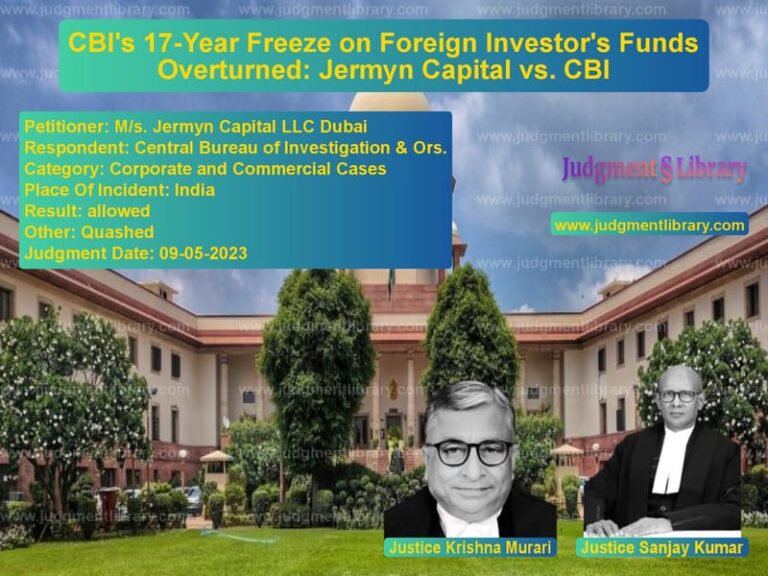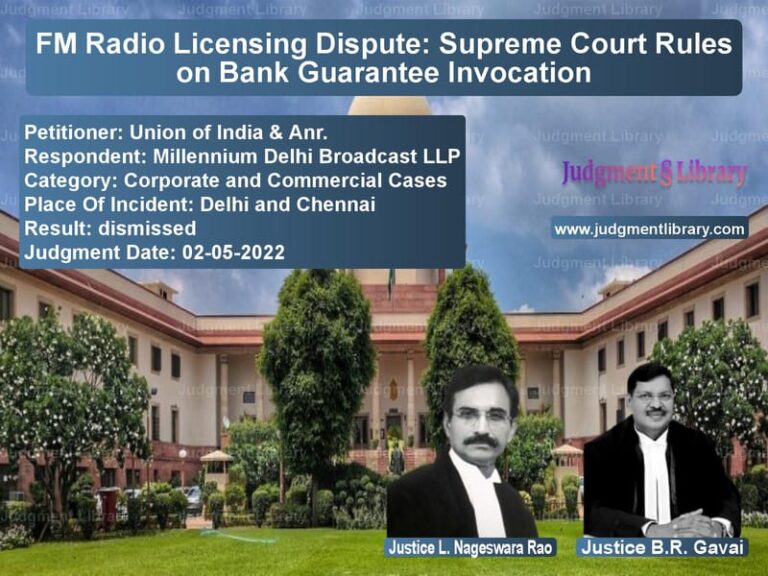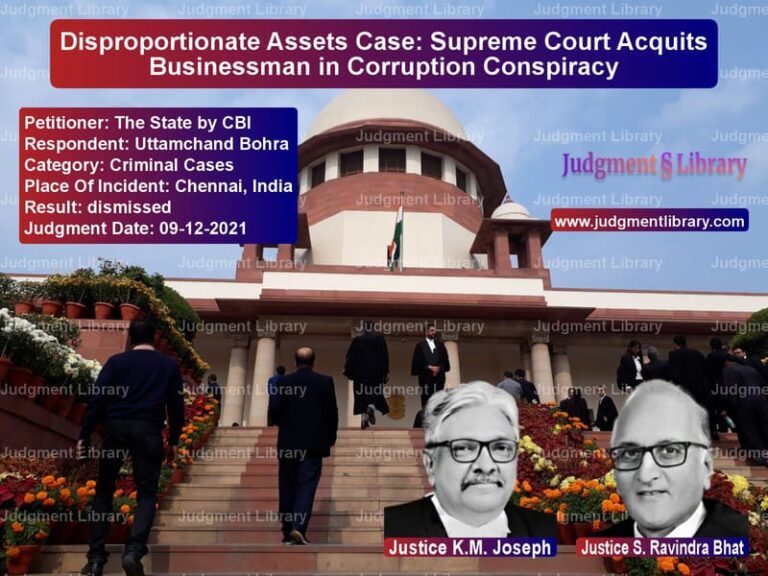Supreme Court Upholds Contempt Conviction of Advocate: A Case of Judicial Misconduct
The Supreme Court of India recently ruled on a case of serious judicial misconduct involving advocate Gulshan Bajwa. The case, which originated from contempt proceedings in the Delhi High Court, dealt with multiple instances of misconduct, including making threats to fellow advocates, filing baseless applications, and making reckless allegations against judges. The Supreme Court, while upholding the conviction, modified the sentence from three months imprisonment to till the rising of the court, considering the appellant’s age and medical condition.
Background of the Case
The case involved multiple proceedings initiated against Gulshan Bajwa, a practicing advocate and former army personnel, who was found guilty of criminal contempt by the Delhi High Court. The matter arose from two suo motu contempt cases (Criminal Contempt Case Nos. 16 & 17 of 2006), where Bajwa was accused of:
- Threatening a lady advocate in open court.
- Repeatedly failing to appear in contempt proceedings.
- Filing applications with unsubstantiated and defamatory allegations against judges.
- Attempting to manipulate judicial proceedings by filing transfer petitions without clients’ knowledge.
High Court Proceedings and Conviction
Contemptuous Conduct
The contempt proceedings were initiated when Bajwa, after receiving an adjournment, allegedly made a threatening remark to a lady advocate representing the opposing party. This remark was heard by other advocates present in the courtroom, leading the court to take suo motu cognizance of the matter.
Despite multiple opportunities, Bajwa failed to appear before the court, instead filing applications challenging the jurisdiction of the court. The High Court issued multiple notices, bailable warrants, and eventually non-bailable warrants to secure his presence.
Judicial Findings
The Delhi High Court, in its ruling, noted:
“It is unfair for any counsel to give threats to the opposing counsel. Lawyers appear as officers of the court to assist in the dispensation of justice, and any form of intimidation undermines the integrity of the legal system.”
The court also found that Bajwa had:
- Repeatedly filed applications making baseless allegations against judges.
- Filed transfer petitions on behalf of clients without their knowledge.
- Misused legal procedures to evade court proceedings.
The High Court, after considering multiple instances of contemptuous conduct, sentenced Bajwa to three months of civil imprisonment and a fine of Rs. 2,000 for each contempt charge.
Appeal Before the Supreme Court
Petitioner’s Arguments
Bajwa, through his appeal, argued:
- The contempt proceedings were biased and initiated with a predetermined conclusion.
- He was not properly served notice regarding the contempt proceedings.
- The allegations against him were exaggerated and taken out of context.
- The orders passed by the High Court failed to consider his previous professional record.
Respondents’ Arguments
The respondents, represented by the Registrar, High Court of Delhi, countered:
- The appellant had engaged in deliberate and repeated contemptuous conduct.
- Despite multiple warnings and opportunities, he continued to flout judicial decorum.
- The allegations were substantiated by multiple witnesses, including senior members of the Bar.
Supreme Court’s Key Observations
“The High Court has properly analyzed the appellant’s conduct, which constitutes clear and repeated interference with the administration of justice.”
“Judicial independence must be protected from acts maligning the reputation of judicial officers. A contemnor must be held accountable when they engage in reckless allegations and threats against the judiciary.”
Final Judgment
The Supreme Court upheld the High Court’s findings but modified the punishment considering Bajwa’s age and health conditions:
- The conviction for contempt was upheld.
- The sentence was reduced from three months of imprisonment to imprisonment till the rising of the court.
- Bajwa was warned against any future misconduct.
Implications of the Judgment
This case sets a crucial precedent regarding legal ethics and professional conduct for advocates:
- Courts will not tolerate attempts to intimidate opposing counsel or undermine judicial authority.
- Repeated instances of misconduct will lead to strict consequences, including contempt proceedings.
- Judicial officers must be protected from false allegations and personal attacks.
Conclusion
The Supreme Court’s ruling in this case reinforces the importance of maintaining the dignity of the judiciary and upholding professional ethics among lawyers. While the court showed leniency in sentencing, the judgment serves as a stern reminder that contemptuous conduct will not be tolerated in any form.
Petitioner Name: Gulshan Bajwa.Respondent Name: Registrar, High Court of Delhi & Anr..Judgment By: Justice Vikram Nath, Justice Pamidighantam Sri Narasimha.Place Of Incident: Delhi.Judgment Date: 30-01-2024.
Don’t miss out on the full details! Download the complete judgment in PDF format below and gain valuable insights instantly!
Download Judgment: gulshan-bajwa-vs-registrar,-high-cour-supreme-court-of-india-judgment-dated-30-01-2024.pdf
Directly Download Judgment: Directly download this Judgment
See all petitions in Contempt Of Court cases
See all petitions in Custodial Deaths and Police Misconduct
See all petitions in Judgment by Vikram Nath
See all petitions in Judgment by P.S. Narasimha
See all petitions in partially allowed
See all petitions in Modified
See all petitions in supreme court of India judgments January 2024
See all petitions in 2024 judgments
See all posts in Criminal Cases Category
See all allowed petitions in Criminal Cases Category
See all Dismissed petitions in Criminal Cases Category
See all partially allowed petitions in Criminal Cases Category







